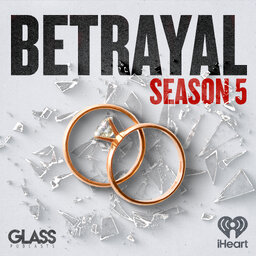Listener Mail: The Library of Alexandria, Cursed Objects from Pompeii, and How Your Voice gets Hacked
What actually happened to the Great Library of Alexandria, and how would the world be different if it hadn't disappeared? What made an anonymous tourist return pilfered objects to Pompeii? How are con artists, corporations and governments hacking your voice? All this and more in this week's Listener Mail.
Learn more about your ad-choices at https://www.iheartpodcastnetwork.com
In 1 playlist(s)
Stuff They Don't Want You To Know
From UFOs to psychic powers and government conspiracies, history is riddled with unexplained events.…Social links
Follow podcast
Recent clips

Introducing: Betrayal s5
03:05

Is the Entire Credit System a Conspiracy?
1:16:33

Listener Mail: The Nature of Intuition, Canadian Citizenship, Manhole Michelangelo and More
57:39
 Stuff They Don't Want You To Know
Stuff They Don't Want You To Know